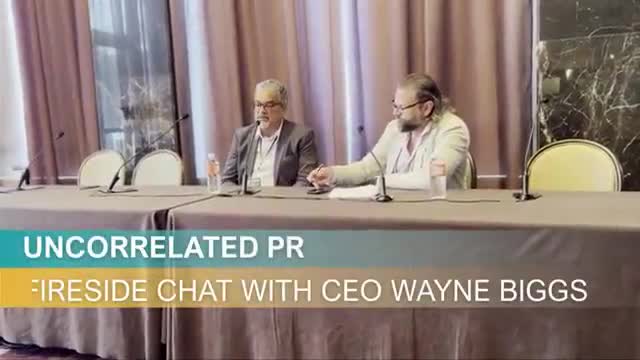Waste Management Authority seeks fee authority, federal grants for landfills and wastewater repairs
Get AI-powered insights, summaries, and transcripts
Subscribe
Summary
The Virgin Islands Waste Management Authority told the budget committee it needs new revenue streams and federal grants to pay vendors, expand landfill capacity, fix failing wastewater infrastructure and complete convenience‑center projects, and asked for statutory collection of a territorywide sanitation fee.
The Virgin Islands Waste Management Authority (WMA) appeared July 21 before the legislative committee to describe a FY2026 budget driven by two needs: stable recurring revenue for collection and landfill operations, and large federal grants and contracts for landfill upgrades and wastewater infrastructure.
Interim Executive Director and CFO Daryl Griffith said the government recommended appropriation to WMA for FY2026 totals $42,800,000 (breakdown given in testimony). The authority projects a $53,619,240 balanced budget and expects to generate tipping‑fee revenue and, if approved by the Public Services Commission (PSC) and collected on property tax bills, a newly proposed solid‑waste collection/disposal/maintenance fee.
Lede points - New recurring fee proposal: WMA described a proposed solid waste collection, disposal and maintenance fee designed to cover territorial house‑to‑house collection, bin sites and transportation to landfills. The proposed rate examples in testimony: $180 per year for residential units (about $15/month). WMA estimated 34,022 residential unit accounts and 20,718 vacant‑lot parcels and projected 70% collection, estimating roughly $6.9 million a year at that collection rate. - Existing revenue and past‑due liabilities: Griffith said the authority’s tipping fee is very low compared with U.S. averages (WMA’s current rate equates to about $5.06/ton versus national landfill averages in the $50s per ton). The authority reported roughly $19 million in accounts payable (past due) and said recent local appropriations and a $5 million legislative transfer were used to pay some vendors. - Federal grants & capital projects: WMA reviewed a long list of federally funded projects in procurement or early construction: CDBG‑DR and mitigation funds for convenience centers (Mambijoo, Cotton Valley, Concordia, Bornfeld/Susannaberg, Red Hook), Bovoni and other landfill expansion/closure work, site selection for a new integrated solid waste management facility on St. Croix, and many FEMA/DOI/EPA‑supported wastewater upgrades (pump stations, plant upgrades, CCTV trucks, UV upgrades, generator purchases, gravity sewer replacements). Several ODR bundles (North Central, South West, St. Thomas East) are in procurement with large construction dollar values.
Why it matters: WMA said recurring local revenues are needed to sustain daily operations (collection, bin centers, public housing and government collection), while federal grants — often large and multi‑year — fund capital, landfill closure and resilience work. Without an approved local fee and timely grant drawdowns, WMA said it cannot cover contractor arrears and must defer repairs.
Committee questions and agency answers - Fee collection mechanics: WMA told senators it prefers a property tax‑bill mechanism rather than putting another charge through WAPA billing because of WAPA’s financial problems. Senators asked for more detail on statutory authority and potential exemptions; WMA said the PSC would need to approve fees and the authority will provide a draft rate schedule and collection mechanics. - Landfill fire and operational issues: senators pressed WMA on fire prevention, water access at landfills and green‑waste management. WMA said it is pursuing grants and work to reduce landfill fires (closure phases, slope regrading, debris and green‑waste handling) and is coordinating with DPNR and other islands stakeholders. The authority noted that federal environmental reviews (e.g., for Red Hook) can delay projects while reviews and public comment proceed.
Selected figures and items from testimony - Proposed recurring residential fee example: $180/year ($15/month) per residential unit; estimated potential annual collections (70% collection) about $6,897,240. WMA said commercial properties and government units would be exempt under the proposal. - Current tipping fee: $7.75 per cubic yard (~$5.06 per ton) — far below the continental U.S. average cited in testimony. - WMA accounts payable: ~ $19,000,000 outstanding (historic past‑due liabilities; agency has spent recent one‑time appropriations to lower the balance). - Major grant pipeline examples: Mambijoo/Cotton Valley/Concordia convenience centers (procurement complete; design‑build contract selected), Bovoni landfill phases (expansion/partial closure), St. Croix new landfill site selection (66 parcels reviewed, 3 remain under consideration), multiple wastewater pump station and plant upgrades across islands (FEMA/DOI/EPA funding bundles). WMA reported contract awards and pending RFPs for equipment (CCTV trucks, mini‑excavators, pump purchases) and major construction bundles sized in the tens to hundreds of millions for sewer gravity line replacement bundles.
Ending note WMA asked the committee to help: approve fee enabling language and support timely local appropriations while the authority works to get federal grants and procurement moving. WMA said it will provide additional accounting of outstanding vendor payables, a schedule of grant draw plans and the draft PSC filing for the proposed collection/maintenance fee upon request.
